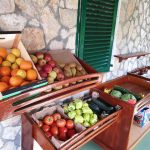ZAGREB, April 11, 2020 – Croatian state institutions in 2019 failed children when it comes to protection against violence, Children’s Ombudswoman Helenca Prinat Dragičević says in a report on her work last year.
She says that the dramatic increase in domestic violence from 2018, measured both by the number of domestic violence complaints and the number of reports of violence against children required urgent and effective measures to protect children.
The ombudswoman calls for coordinated action and consolidation of institutions that work on protection against violence as well as hiring more professionals.
Analysing last year, Pirnat Dragičević says that some children died or their life was in danger due to their parents’ negligence, and in that context singles out the case of a father on the island of Pag who threw his four children off a balcony.
The year 2019 was marked by a sudden rise in child mortality caused by deaths in traffic accidents as well as by problems in the education system that culminated in a long teachers’ strike.
Eighteen children were killed in traffic accidents, 203 sustained serious injuries and 1,100 light injuries, Pirnat Dragičević says.
She goes on to say that her office received almost 10% more complaints compared to 2018, opened 1,741 new cases, and acted in 933 cases, which, she says, had been carried over from previous years due to their complexity.
The office received 97 reports of domestic violence, 35 more than in 2018. Violence was most frequently reported by parents – in 35 cases by mothers, in 15 cases by fathers, and in 17 cases by institutions such as schools and kindergartens.
The ombudswoman also expresses concern about acts of cruelty against children.
The extensive report also says that close to 2,200 children could not meet and spend time with the other parent or did so for a shorter period of time than ordered by the court, the reason being manipulative behaviour on the part of the parent with whom the child lives.
The ombudswoman notes that in numerous cases there was no urgent and coordinated action by state institutions to protect such children.
As regards the strike of primary and secondary school teachers from October 10 to December 2, Pirnat Dragičević says that her office received 72 written complaints and several dozen phone calls by parents, children as well as teachers concerning breaches of children’s right to education.
The complaints raise a number of questions regarding the timely provision of information to children on the suspension of classes, making up for classes lost, children’s right to free time, and organisation and implementation of school-leaving exams, she says.
These questions should be answered so that in future similar situations, advantage is given to the protection of children’s interests, says the ombudswoman.
Pirnat Dragičević also reports an increase in the number of children in need of institutional care, uneven territorial representation of foster families and lack of professional foster care.
At the end of 2019, there were 75 children in children’s homes who met conditions for adoption, and during the year there were 25 adoptions, three more than in 2018.
The number of children who meet conditions for adoption is still high, and among them are children in whose adoption there is no interest, as well as children who oppose adoption and whose opinion should be respected, the ombudswoman says.
Commenting on the case of a same-sex couple who was denied the right to provide foster care, Pirnat Dragičević says the most important criteria in evaluating an applicant are the child’s needs and the applicant’s competencies and dedication and readiness to care about the child in a good and committed way rather than their sexual orientation. In making such a decision, “one should also take into account the child’s opinion, in line with their age,” she says.
More human rights news can be found in the Politics section.







